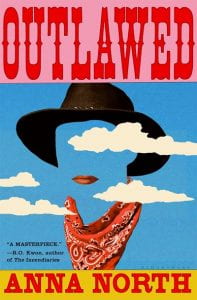
Maryam62 / Pixabay
As a classroom teacher I’ve sat through several Professional Learning (PL) sessions on ‘growth mindset’ and thought, this is so important for our students to develop, while also thinking that I already have one.
What I’ve noticed in reflecting on my understanding of the role of the Teacher Librarian (TL), information literacy and inquiry learning over the course of this subject, is how I often focused on the difficulties and obstacles. While this may be an all-too-predictable outcome of cognitive overload (or ‘infowhelm’), I’m disappointed in my own attitude. As E. Friend (2021) says in her blog post, “The attributes of information mean that its volume is always increasing. […] The role requires a person who is open minded and responsive to emerging technologies” (para. 2). An effective TL is a flexible life-long learner who constantly keeps updating their knowledge precisely because ‘information’ keeps evolving and increasing.
I began this course not really understanding what a teacher librarian was or what they did (Badcock, 2021, March 13) – and I’m not unique. No wonder there is a concern that TLs are an endangered species (Badcock, 2021, April 19). Making the role relevant in schools requires highlighting its usefulness to others. Collaborating with classroom teachers to embed the General Capabilities in inquiry teaching presents the ideal solution, not only to the question of relevance but also the need to teach information literacy.
The nuances of ‘information literacy’ as a complex concept took me by surprise. I had a fairly basic grasp of ‘information’ as one type of thing, and ‘literacy’ as another. Far from being a pretty way of saying ‘knowing how to find good facts’, information literacy is really about developing the “skills of learning to learn” (Talja & Lloyd, 2010 para.4). N. Dollisson’s comment that “everyone is in some way part of information in our society. […] We talked [with students] about how varied our information books are and here we are trying to classify them in a system that is over 100 years old” (personal communication, March 14, 2021) really resonated with me. The point she makes is that our systems for organising information have not kept up with the evolving nature of information itself, which has come to encompass people as well as documents in a variety of forms. Within such a context, of course the TL must be a flexible problem-solver.
Yet there is a distinct difference between knowing something conceptually, and truly understanding it and living it. Learning about information literacy models brought on a fixed mindset response, again – a self-preservation instinct, perhaps, against ‘infowhelm’. My blog and forum posts reveal a hesitance to look past the obstacles and challenges to possible solutions (Badcock, 2021, April 29, para. 6). I explored this psychological aspect in my blog post on collaboration (Badcock, 2021, May 2) but struggled to apply it to inquiry learning. Not until I designed an inquiry unit for a teaching area completely out of my comfort zone, in minute detail, did I feel the shift from a fixed to a growth mindset. This is significant because in this, too, I am not unique.
A turning point for me was Maryanne Wolf’s (2009) point that literacy and inquiry learning enables you to ‘think beyond the text’ (Badcock, 2021, May 8). My pedagogical focus has long been on teaching ‘critical thinking’ skills, which is why C. Kuhlthau, L. Maniotes and A. Caspari’s (2012) information literacy model, Guided Inquiry Design, was the only one that resonated. It embeds the active teaching of 21st Century Skills while taking a holistic, constructivist (or ‘sociocultural’) approach. Along with my peers in this course, my initial response to inquiry learning in the forums was to fixate on when students would be taught the skills they needed to conduct an inquiry – A. Wilson added to this by framing it in the context of the demands to produce data (personal communication, 2021, April 17). P. Blaxland (personal communication, 2021, April 29), commented on the importance of integrating information literacy into the teaching of other subjects, also called ‘transliteracy’ (Finden, 2021, para. 3), a timely reminder of epistemology: that information (and information literacy) does not exist in a vacuum (Farrell & Badke, 2015, p.323). There are many challenges to teaching information literacy, and many models to choose from, but learning about these things in such depth has reignited my passion for teaching and learning.
References
Farrell, R. & Badke, W. (2015). Situating information literacy in the disciplines: A practical and systematic approach for academic librarians. Reference Services Review, 43(2), 319-340. https://www-emerald-com.ezproxy.csu.edu.au/insight/content/doi/10.1108/RSR-11-2014-0052/full/html
Finden, J. [jessicafinden] (2021, May 3). Convergence – Information Literacy and Transliteracy. For the love of libraries. [blog] https://thinkspace.csu.edu.au/jfinden/2021/05/03/convergence-information-literacy-and-transliteracy/
Friend, E. [emma.veitch] (2021, March 15). Teacher librarian in the information landscape. The Friendly Librarian. [blog] https://thinkspace.csu.edu.au/friendlylibrarian/2021/03/15/teacher-librarian-in-the-information-landscape/
Kuhlthau, C., Maniotes, L., & Caspari, A. (2012). Guided inquiry design: A framework for inquiry in your school. Libraries Unlimited.
Lloyd, A. (2007). Recasting information literacy as sociocultural practice: Implications for library and information science researchers. Information Research, 12(4). http://informationr.net/ir/12-4/colis/colis34.html
Talja, S. & Lloyd, A. (2010). Integrating theories of learning, literacies and information practices. In Talja, S. & Lloyd, A. (2010). Practising information literacy: Bringing theories of learning, practice and information literacy together. Centre for Information Studies. https://www.sciencedirect.com/science/article/pii/B9781876938796500194
Wolf, Maryanne. (2009). Beyond decoding words in Does the brain like ebooks? New York Times [blog] https://roomfordebate.blogs.nytimes.com/2009/10/14/does-the-brain-like-e-books/?_r=0

















Recent Comments
shannon.badcock
"Yes I wondered/worried about that. I find it hard to separate it from ..."
ederouet
"What a great looking blog! I love your widgets and use of categories ..."